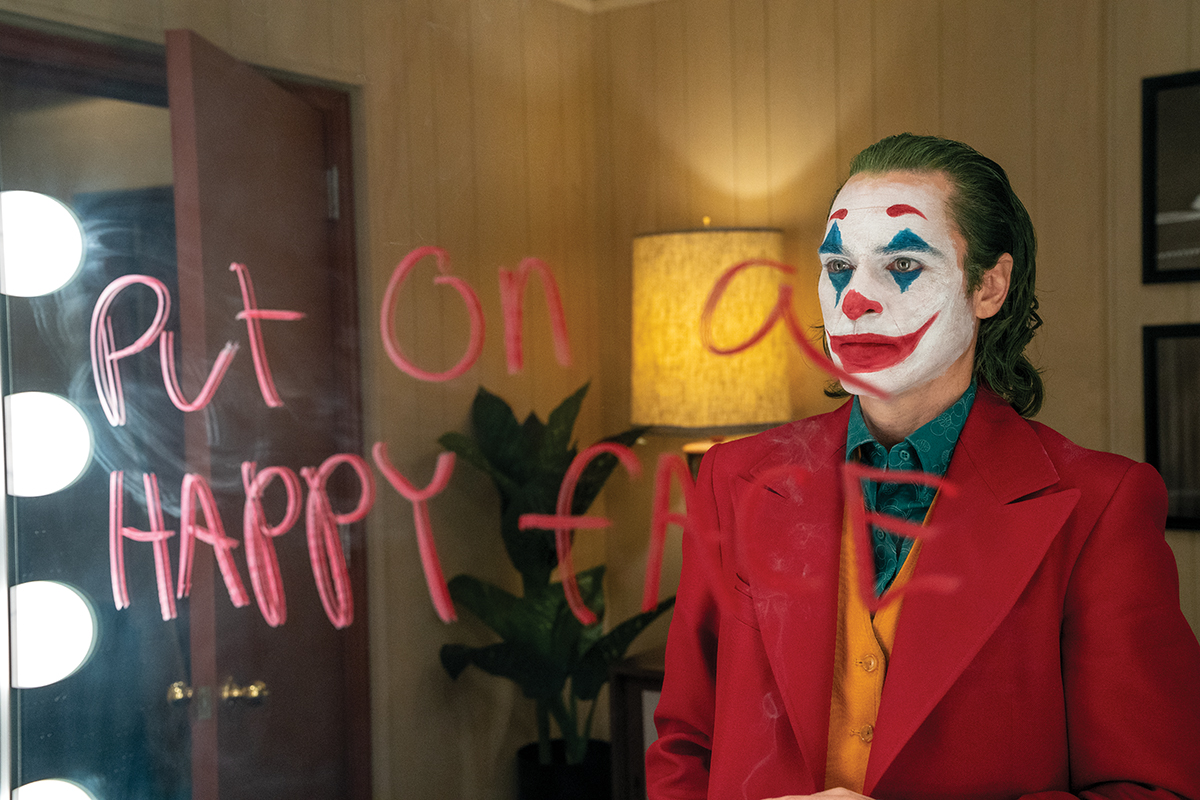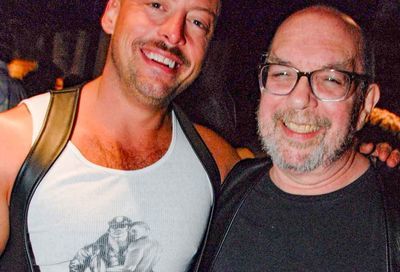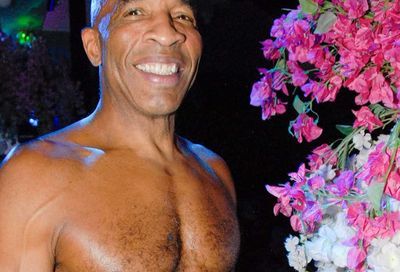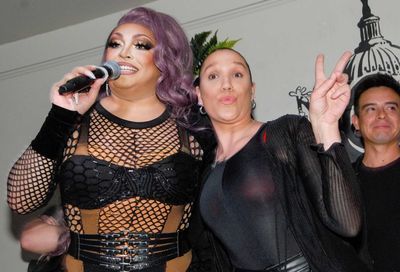Film Review: ‘Joker’ offers a terrifying version of Batman’s nemesis
A comic-book villain inflicts realistic pain in Todd Phillips' well-made and still-maddening 'Joker'

Before he becomes anything like a “Clown Prince of Crime,” the toxic loner at the center of the vexing, Batman-adjacent Joker (★★★☆☆) is just another sad clown in the grimy, graffiti-covered city. It’s 1980, and Gotham City is fast falling to pieces, riven by rampant vice and violence, a smelly garbage strike, and even an infestation of rats. Depressed former mental patient Arthur Fleck (Joaquin Phoenix) is barely employed as a clown-for-hire, and caring for his invalid mother Penny (Frances Conroy), while stoking a burning passion to make it big as a standup comedian.
For a clearly delusional fellow, Arthur takes a few reasoned, astute steps towards pursuing his dream — he’s just not funny. The movie amply depicts Arthur’s cringeworthy unfunniness, onstage and off, which has limited entertainment value, but allows Phoenix to further flex his singular talent for enacting social awkwardness. Imagine spending all of Silence of the Lambs with just Buffalo Bill. Not everybody’s idea of fun.
Arthur reminds his critics that comedy is subjective, so maybe there’s an audience out there for him. But the fact that everyone he encounters regards him as a “freak,” or “weird,” or flat-out tells him that he makes them uncomfortable doesn’t bode well for his success as a comic. He appears doomed to fail — and then he’s made the hapless victim of a random street assault by a pack of teens. And he’s fired, lied to, scapegoated. Along the way, someone gives him a gun, and though Arthur is informed enough to know that legally he shouldn’t have one, he keeps it. Then he goes on to use it.
Both a solid new origin story for Batman’s most notorious villain, and a tense psychological profile of a frightening lone gunman, Joker portrays as terrifying a version of this character as any live-action depiction has dared. However, terror also is subjective. Some viewers, as there were in our screening, will cheer Arthur on as he takes out his anger at the world on three obnoxious, harassing dudes on the subway. Onscreen, various residents of Gotham definitely cheer on the actions of the unknown killer clown, casting him as the vigilante symbol of a burgeoning so-called anti-rich movement. Arthur hears someone hail the clown, saying that thanks to him, there are “three less pricks in Gotham City.”
Sure, but what about the homicidal maniac with the gun who just fired shots into the back of a dying man? Anyone old enough to know the name Bernard Goetz might feel at least ambivalent about Arthur assuming the mantle of gun-wielding antihero. And the gun violence plays out far too realistically to ignore the film’s persistent visual and historical references to real-life ’70s and ’80s New York, or to present-day take-your-pick USA, for that matter.

Yet the movie judges Arthur none too harshly for picking up his gun — or scissors, if they’re handy — painting on his clown-face, and aggressively settling scores. His grievances and brutally bloody crimes are all justified by, in Arthur’s view, the awfulness of other people. The script by Phillips and Scott Silver stealth-justifies the clown’s crime spree through his inexplicable ascent from underground symbol to glorified hero of a popular movement. Any arguments about whether the character could ever influence the actions of similarly troubled souls are resolved by the film’s pointed depiction of Gotham’s growing legion of criminal clown copycats, including one Joker follower who dons his own mask to shoot and kill innocent people.
In a cunning or insidious move, the film uses the sympathies of Arthur’s inscrutably nice neighbor Sophie (Zazie Beetz) to soften him to a degree. Beetz conveys a warm, genuine quality in her turn as a single mom who’s fed up enough with this town that she might be able to look upon Arthur with respect and affection. Conroy is typically great as Arthur’s even-more delusional mom, and Robert De Niro is refreshingly sharp as the late-night TV host whom Arthur and mom fixate on inside their dysfunctional familial bubble. There isn’t a bum performance in the movie, and composer Hildur Guðnadóttir’s strings-laden score sounds especially attuned to every one of them. There’s even a mini-theme for Gotham’s billionaire industrialist, and potential mayoral candidate, Thomas Wayne (Brett Cullen), father of Bruce.
Arthur runs afoul of the Wayne family in a sad, demented, and believable fashion, that, to the film’s credit, adds intrigue to the old-hat tale of Batman versus the Joker. The spark of earned enmity could easily inspire a grownup Bruce Wayne to also someday don a mask, grab his weapons, and head out to terrorize the night. If he should ever cross a moral line in his vigilante crusade, would he have the Joker to blame?
Joker is rated R, and opens in theaters everywhere on Friday, Oct. 4. Visit www.fandango.com.
Support Metro Weekly’s Journalism
These are challenging times for news organizations. And yet it’s crucial we stay active and provide vital resources and information to both our local readers and the world. So won’t you please take a moment and consider supporting Metro Weekly with a membership? For as little as $5 a month, you can help ensure Metro Weekly magazine and MetroWeekly.com remain free, viable resources as we provide the best, most diverse, culturally-resonant LGBTQ coverage in both the D.C. region and around the world. Memberships come with exclusive perks and discounts, your own personal digital delivery of each week’s magazine (and an archive), access to our Member's Lounge when it launches this fall, and exclusive members-only items like Metro Weekly Membership Mugs and Tote Bags! Check out all our membership levels here and please join us today!






















